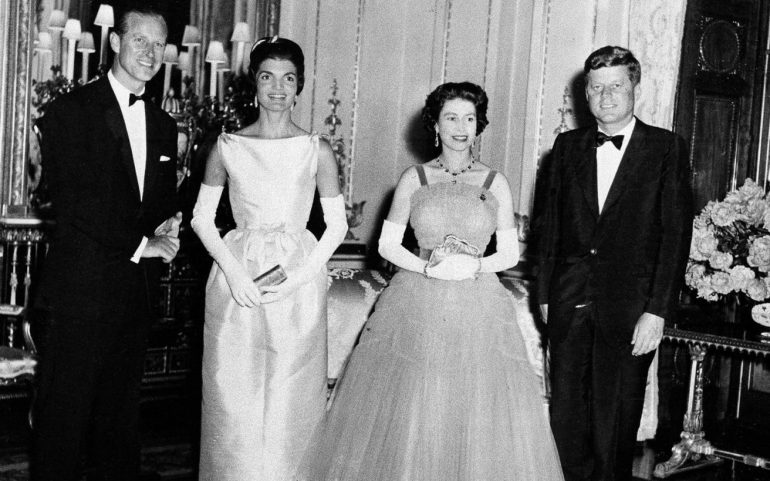There are a surprisingly large number of connections between the Kennedy dynasty and the English royal family, one wonders if these two large families actually lived parallel lives.
The story of the Kennedys, then, begins with Joseph Kennedy the Elder, father of John and Bobby Kennedy, who had the desire to become President of the United States, but his unsuccessful tenure as ambassador to Britain during World War II put an end to his plans. At the same time, Queen Elizabeth's father George VI, who was experiencing a very good period for his popularity, had just ascended the royal throne of England. A few years later, when the reins of the royal throne passed to Queen Elizabeth II, she had to work with the new US President, John "Jack" Fitzgerald Kennedy, son of Joseph.
John F. Kennedy's father and his relationship with the Royal Throne of England
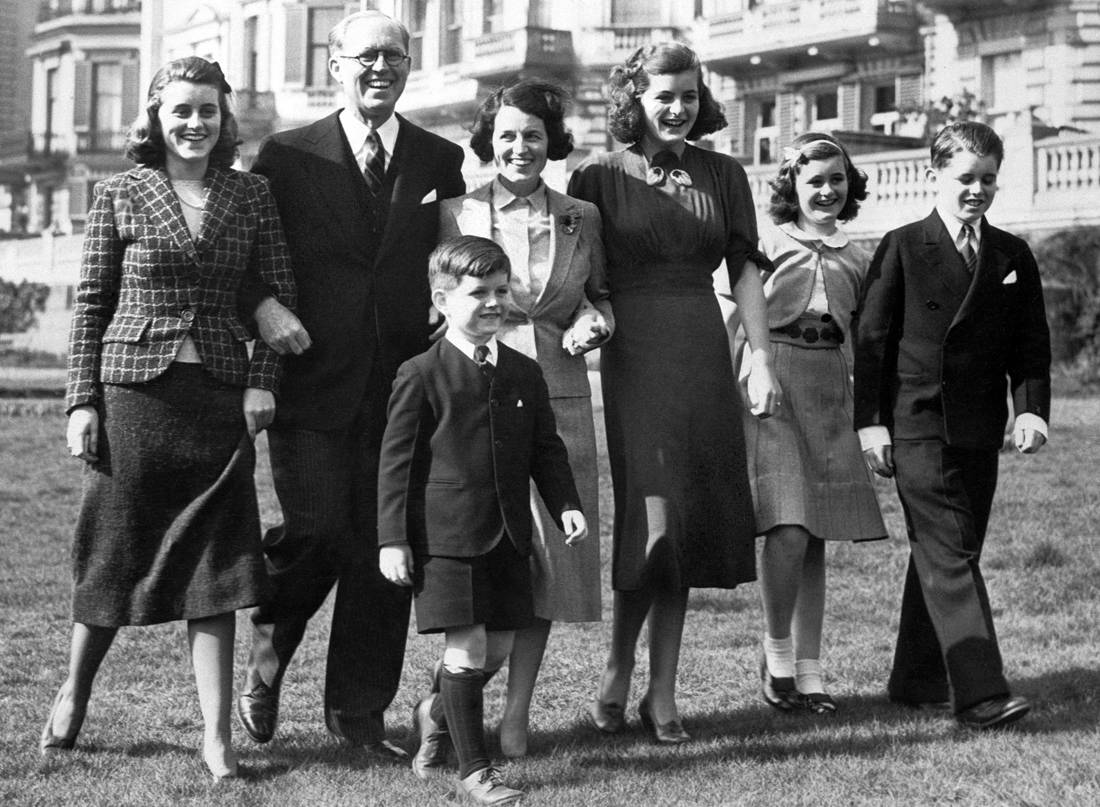
It was in 1938 when Joseph Kennedy, one of the richest (he had already bought a number of production companies) and most ambitious people of his time - a personality much bigger and more important than his two prominent children - was appointed US ambassador to Britain. Shortly before the start of World War II, with Hitler already slowly and effectively turning the people against the Jews and Kennedy not chewing his words.
He is the first American of Irish descent to take up the post, with him and his family receiving a warm welcome from the British. As Irish Catholics in America they encountered many obstacles, something that did not happen on English soil, where they received invitations from the palace to spend a weekend at Windsor Palace with King George VI and his wife Elizabeth.
So while Joseph Kennedy was doing quite well with his new position, King George VI was making his first steps into the English monarchy, as just two years ago his brother David (also known as King Edward VIII) resigned. the throne in order to marry the divorced Wallis Simpson. The new king, therefore, found himself unprepared and uncertain, as he had to face an office and the obligations it had, completely suddenly and unexpectedly.
How World War II Affected the Lives of Kennedy and Windsor
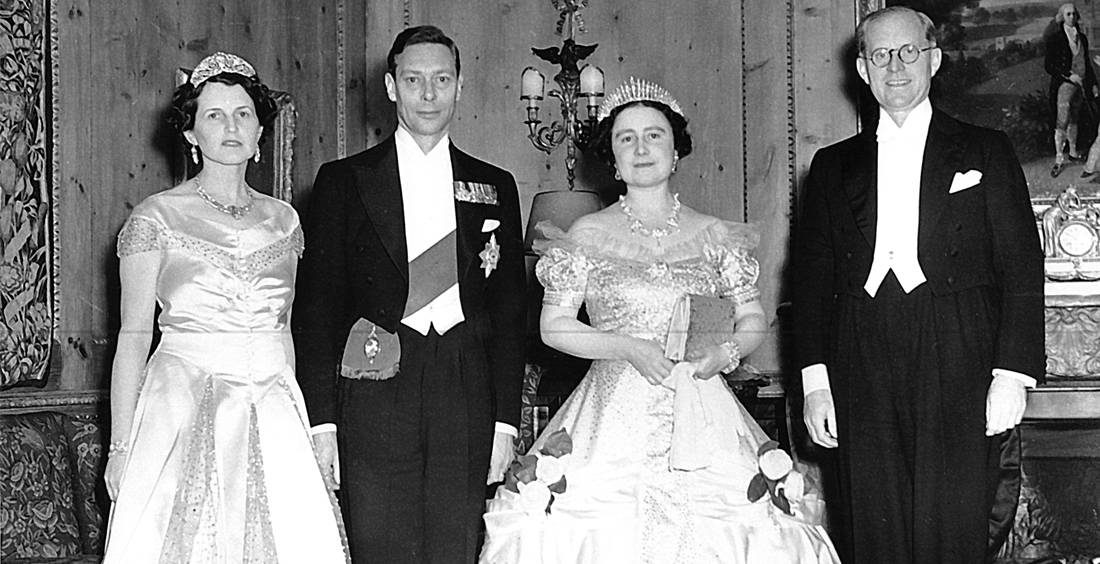
As Nazi Germany became more aggressive and the war came closer to the British authorities, the positions of Joe Kennedy and King George began to oppose. In 1939 King George overcomes the problem of stuttering by giving a decisive speech (as was typically conveyed on the big screen with the film "The King's Speech") as Britain now enters the World War II.
Meanwhile, the distancing stance of Joe Kennedy, who did not want the US to get involved in a European conflict, lost the support he had from both the United Kingdom and President Roosevelt.
In particular, in an interview in November 1940, he had characteristically stated "Democracy has paid off in England. He may have died here too "believing that England was at war with Nazi Germany. THE Roosevelt, as expected, forced him to resign, as his ambassador instead of serving the country and its politics, he acted against it.
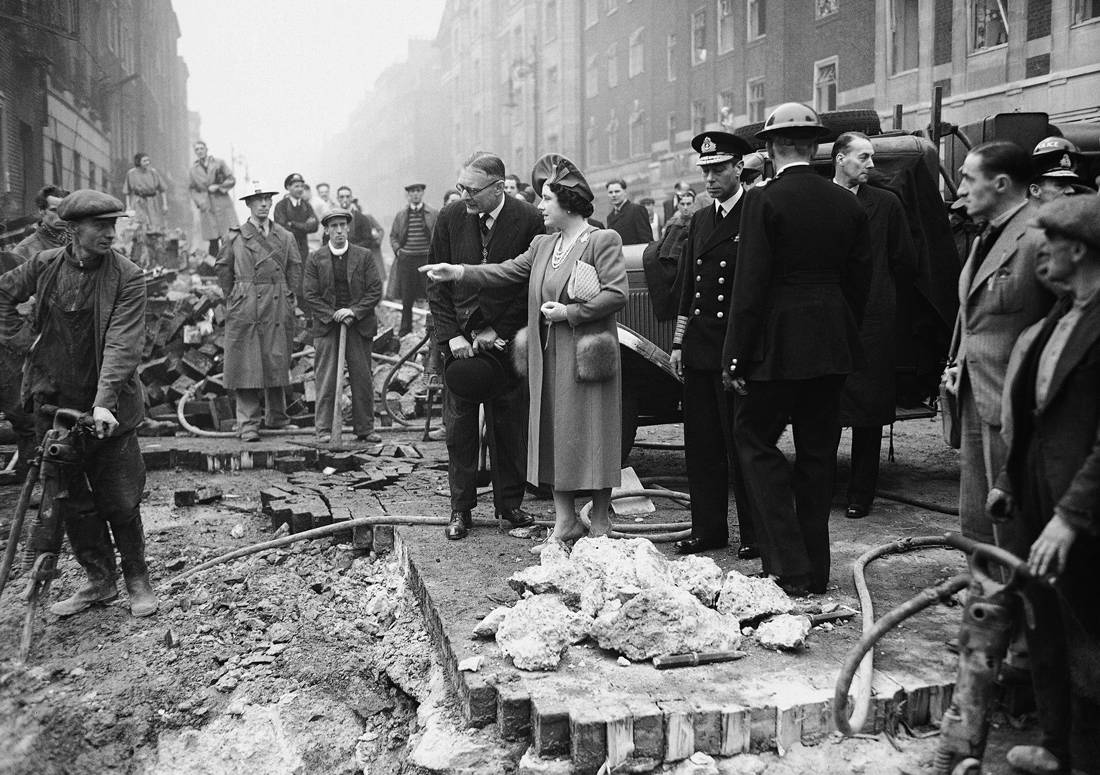
Thus, his plans for a future political career, seeing his political supremacy decline, as president of the United States saw their premature and glorious end, after Roosevelt's decision to run for the presidency for a third term.
In England, on the other hand, George VI and his queen became symbols of resilience for the country as the war continued. The government asked the royal family to leave the country for safety and move to Canada, but the king and the queen and their two daughters, Elizabeth and Margarita, refused to leave the country for personal gain. Something that in combination with the bombing of Buckingham Palace greatly increased the popularity of the royal couple.
Elizabeth II assumed the royal throne when JFK became President of the United States
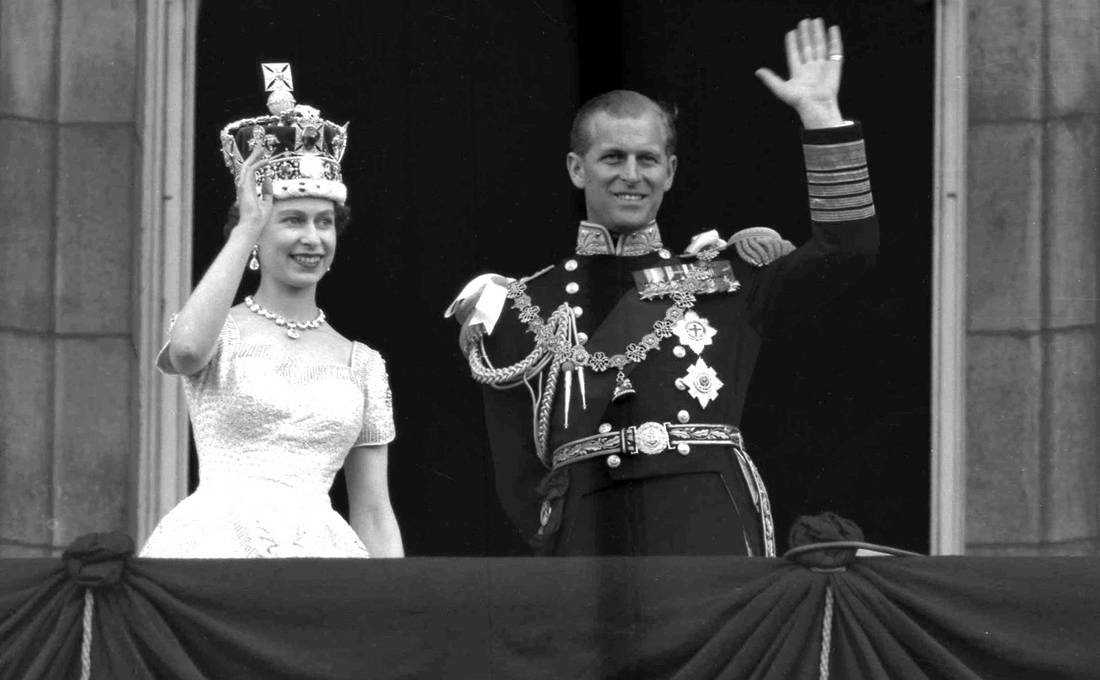
Joseph Kennedy, therefore, turns his political aspirations for the presidency of the United States to the beloved eldest son of Joseph Kennedy Jr., who in the end did not prove so lucky as he died in August 1944 during the war. Thus, his place had to be taken by John F. Kennedy, also known by the nickname "Jack", second in line son of a total of 9 children of the family.
This is not the career JFK had dreamed of, but he agreed to his father's political plans by successfully running for Congress in 1946 and being elected to the Senate in 1952.
At the same time in England the princess Elizabeth, George VI's eldest daughter succeeds her father to the monarchy after his death on February 6, 1952. Among others, her inauguration the following year was attended by the young journalist Jacqueline Bouvier, who would soon marry JFK and become known worldwide as Jackie Kennedy.
The tense first meeting between Queen Elizabeth and Jackie Kennedy
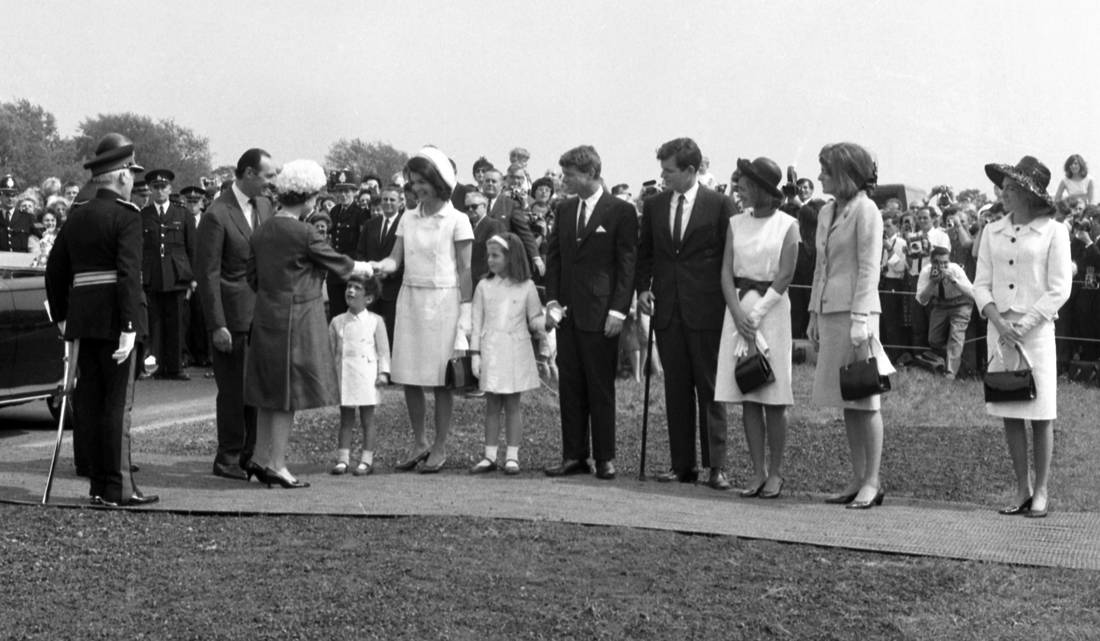
When JFK and Fireplace traveled to London in 1961 to attend the christening of the latter's niece, Queen Elizabeth asked the presidential couple to dine together at Buckingham Palace. Jackie, however, "demanded" her sister to attend dinner with her son-in-law, who was already divorced once, which was a problem for the palace and the strict protocol that follows.
The two eventually attended dinner, however, as Jackie revealed to American writer Gore Vidal, "Queen Elizabeth took her revenge by not inviting Princess Margarita, whom I wanted to meet up close."
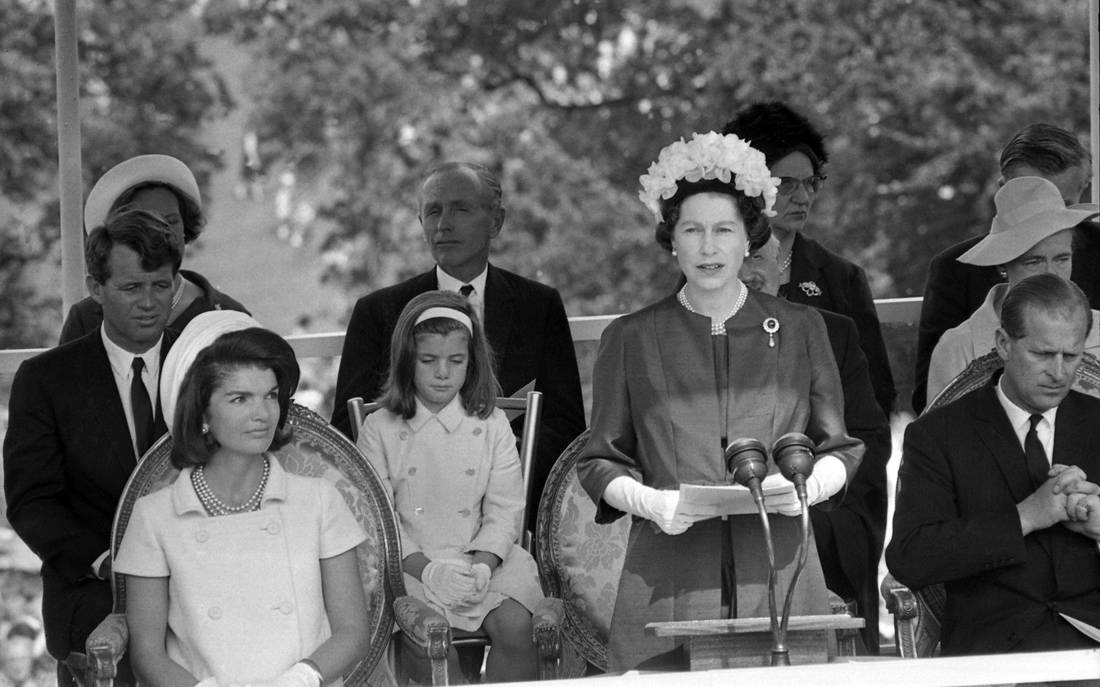
In addition, Jackie told photographer Cecil Beaton that she was not particularly impressed with either the palace decor or the queen's attire (Elizabeth, on the other hand, felt some bitterness for the impatient enthusiasm shown by the crowds towards both on arrival in Paris and later in London).
The following year, Jackie visited her sister in London again, with the queen inviting her for another dinner. As everything shows this went smoothly, without any spicy background, as happened in their previous meeting. All Jackie said was, "I do not think I have anything to say but how grateful I am and how charming the queen was." For her part, Elizabeth wrote to JFK "It was a great pleasure to meet Mrs. Kennedy again."
The Queen duly honored JFK after his infamous murder
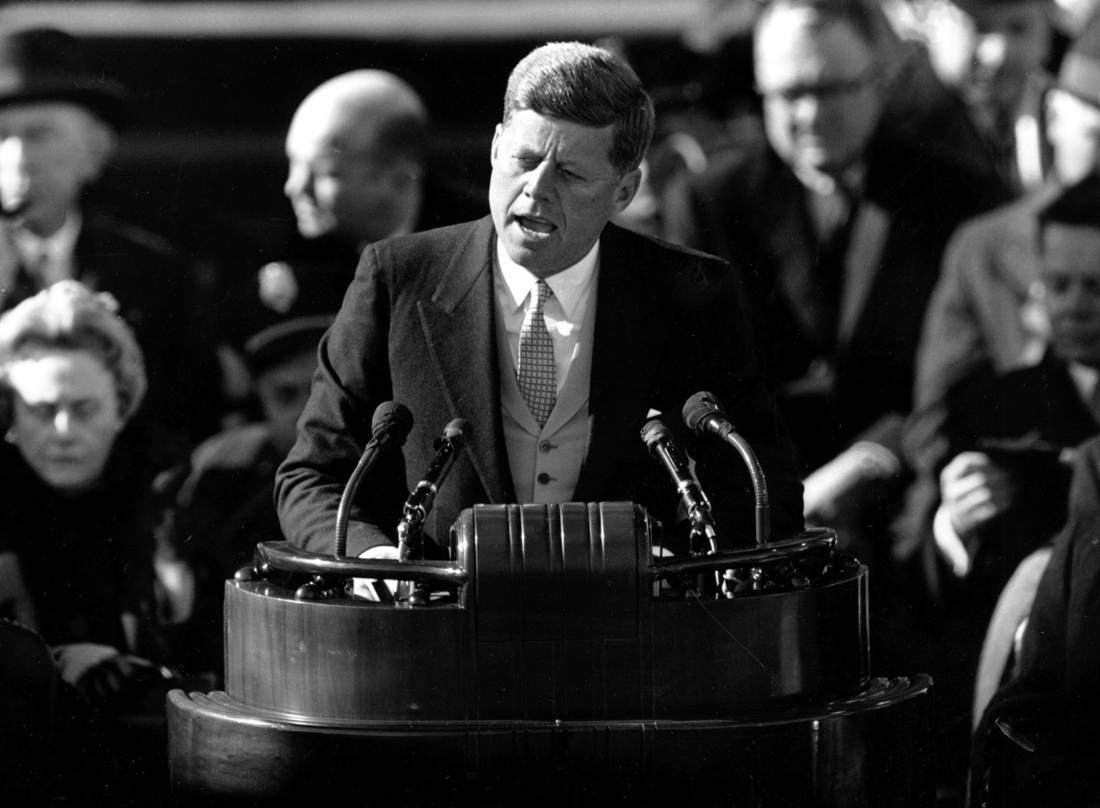
The Queen's only personal contact with JFK was during the couple's visit to England in 1961. This, however, did not mean that they could not work well together. Her prime minister even assured her that the president continued to provide financial support to a Commonwealth dam in Ghana after the queen's successful visit.
After murder of John F. Kennedy in 1963 the queen asked to be given a bell at Westminster Abbey. With her pregnancy preventing her from attending St Paul's Cathedral, where prayers were being held in honor of Kennedy - Prince Paul was present at the funeral of the assassinated president in Washington - she ordered another service to be held in Cairo. , where he could attend.
Finally, on May 14, 1965, in honor of JFK, the American people were given an acre of Runnymede, a site next to Windsor Palace where in 1215 King John signed the Magna Carta, the English Charter, one of the most important documents in the history of democracy and the rule of law.
During her speech, Elizabeth characteristically mentioned "The great hopes that led with him to a future that was never written".
